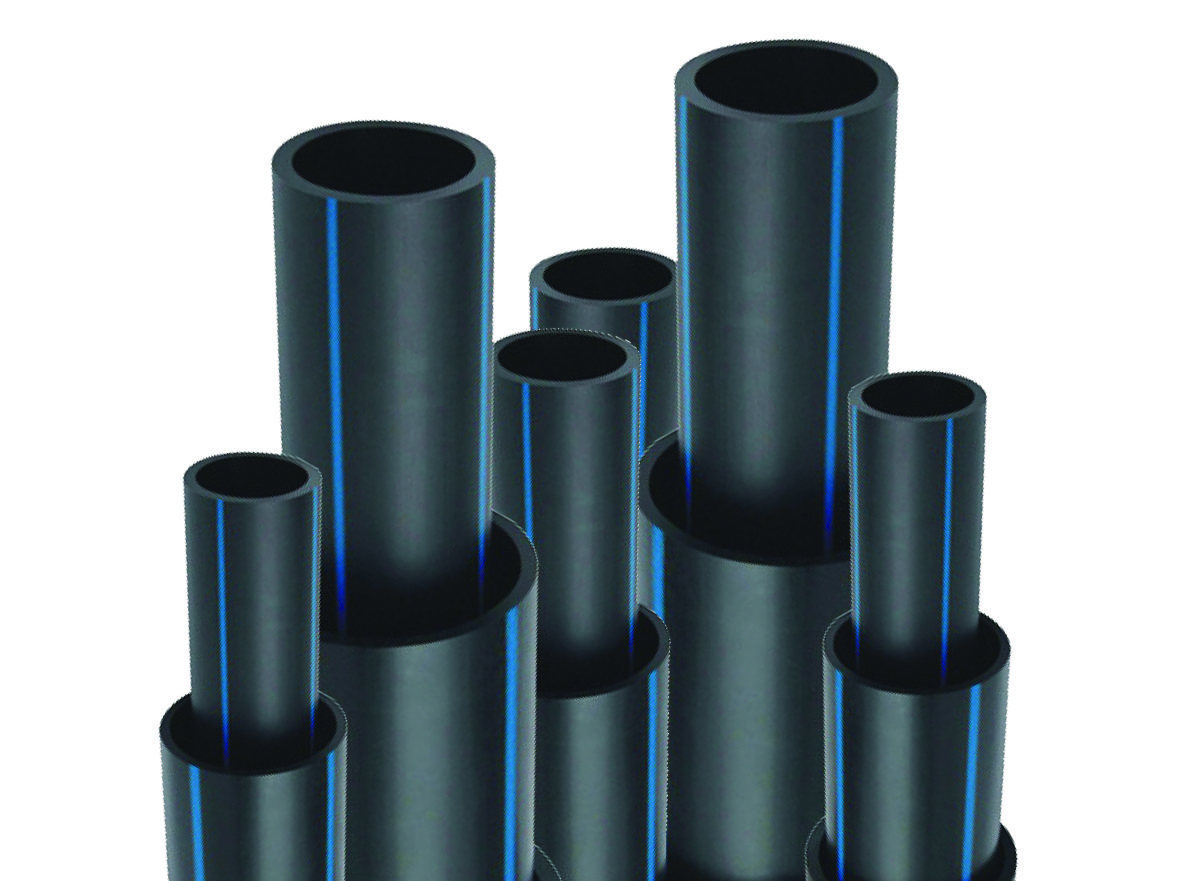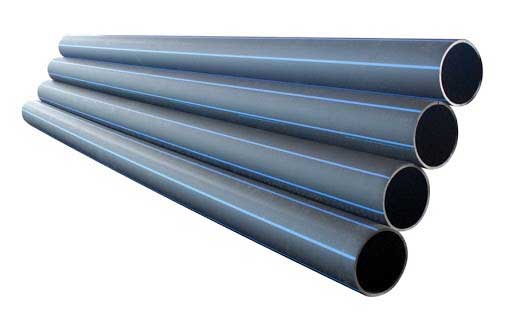Why Partnering with Pipe Supplier American Plastics Midland Ensures Timely Supply
A Comprehensive Overview to the Various Usages of HDPE Pipeline in Building and Market
HDPE pipelines have actually emerged as a critical component in modern building and construction and industrial applications. Their unique residential properties, such as resistance to corrosion and lightweight style, make them ideal for a wide variety of uses. From water systems to agricultural watering, HDPE pipes offer options that enhance effectiveness and sustainability. Comprehending their varied applications is necessary for specialists wanting to maximize framework. What certain advantages do these pipelines offer each sector?
Water System and Distribution Systems
Water system and circulation systems are essential components of metropolitan facilities, typically counting on high-density polyethylene (HDPE) pipelines for their resilience and effectiveness. These systems transport drinkable water from treatment centers to consumers, making sure availability and security. HDPE pipes are favored for their resistance to rust, chemicals, and extreme temperature levels, which boosts their longevity and reduces upkeep expenses. Additionally, their light-weight nature permits much easier installation and transport, making them suitable for various city and country applications.
The versatility of HDPE pipelines enables them to be installed in tight areas and around obstacles, reducing the requirement for considerable excavation (Midland TX HDPE Pipe Fittings in Stock). Their smooth indoor surface area reduces rubbing losses, boosting water circulation rates. As cities proceed to expand, the demand for reliable water supply systems increases, positioning HDPE pipes as a lasting remedy for modern framework projects. Their tested record makes them a recommended option among engineers and urban organizers alike
Wastewater Monitoring and Treatment
Efficient wastewater management and therapy are essential for maintaining public health and wellness and environmental top quality. HDPE pipes play an essential role in this process because of their resilience, resistance to corrosion, and capability to stand up to harsh chemicals. These pipelines are frequently utilized in numerous applications, consisting of sewage systems, stormwater drainage, and wastewater treatment centers. Their light-weight nature promotes simpler setup and transport, decreasing labor costs and time.
In enhancement, HDPE pipelines have a smooth indoor surface that decreases rubbing loss, advertising effective circulation rates. They are also less susceptible to leaks and failures contrasted to conventional products, making sure that impurities are consisted of successfully. Their versatility allows for flexibility in numerous soil problems, making them ideal for diverse environmental settings. As sectors significantly prioritize sustainable practices, the use of HDPE pipes in wastewater monitoring systems straightens with objectives for lowering environmental influence and boosting resource recovery.
Agricultural Irrigation Solutions
In agricultural setups, effective watering solutions are vital for optimizing crop returns and handling water resources. HDPE (High-Density Polyethylene) pipelines play a vital role in contemporary irrigation systems due to their resilience, versatility, and resistance to corrosion. Their capacity to withstand high pressures makes them suitable for both surface and subsurface irrigation applications, making sure uniform water circulation across fields.
Farmers can use HDPE pipelines in drip watering systems, which supply water directly to plant roots, lessening waste and promoting healthy and balanced development. Furthermore, these pipes are light-weight and easy to set up, lowering labor expenses and installment time. Their long lifespan and reduced upkeep demands even more improve their allure in farming techniques.
HDPE pipes are eco friendly, as they can be reused and do not leach unsafe chemicals into the soil. This makes them a lasting selection for farmers aiming to adopt environmentally friendly agricultural approaches while maximizing efficiency.
Industrial Applications and Procedures
Flexibility is a characteristic of HDPE pipes, making them important in different commercial applications and procedures. These pipelines are commonly used in chemical check here handling markets due to their outstanding resistance to a vast array of harsh compounds. HDPE's lightweight nature, incorporated with high tensile stamina, enables simple installation and long-lasting efficiency popular settings.
In the oil and gas market, HDPE pipelines play a necessary function in carrying hydrocarbons and gases, thanks to their toughness and adaptability - Midland TX HDPE Pipe Fittings in Stock. Additionally, they are used in mining procedures for the transportation of slurry and other materials, where typical piping systems might fall short
In addition, HDPE pipelines are progressively made use of in making facilities for supply of water lines and wastewater monitoring. Their capacity to withstand extreme temperature levels and pressures makes them suitable for a variety of commercial processes. Generally, HDPE pipelines contribute significantly to performance and safety across varied commercial applications.
Stormwater Management and Drain Solutions
Stormwater administration and drain systems are important elements in metropolitan framework, developed to take care of excess rains and reduce flooding threats. High-density polyethylene (HDPE) pipes are progressively utilized in these systems due to their sturdiness, versatility, and resistance to corrosion. These pipelines effectively transport stormwater far from populated locations, reducing surface area runoff and avoiding waterlogging.
HDPE's light-weight nature helps with much easier installment, minimizing labor prices and building and construction time. Furthermore, its resistance to chemicals and ecological stressors assurances longevity and reliability in different climates. In addition to conventional drain applications, HDPE pipelines are additionally used in innovative remedies such as green infrastructure, which consists of rainfall gardens and permeable pavements.

Regularly Asked Inquiries
Just How Does HDPE Pipeline Contrast to PVC Pipeline in Cost?
As a whole, HDPE pipeline has a tendency to be extra costly than PVC pipe as a result of its improved sturdiness and versatility. Long-lasting cost considerations, such as upkeep and lifespan, might favor HDPE in particular applications.
What Is the Life-span of HDPE Pipes Under Diverse Problems?
HDPE pipes usually have a life-span of 50 to 100 years, depending on ecological conditions, installment methods, and usage. Aspects such as temperature, soil kind, and exposure to chemicals can considerably influence their durability.
Can HDPE Piping Be Recycled After Usage?
Yes, HDPE pipelines can be reused after use. The recycling process involves melting down the material, allowing it to be repurposed into brand-new items, thereby advertising sustainability and reducing ecological influence related to plastic waste.
Exist Any Type Of Particular Installation Obstacles With HDPE Pipes?
Installment difficulties with HDPE pipelines include appropriate jointing methods, making certain sufficient trench conditions, and taking care of thermal expansion. Furthermore, competent labor is called for to handle specific devices, which can complicate the setup procedure in different environments.

What Certifications Should I Seek When Buying HDPE Pipelines?
When buying HDPE pipelines, one ought to try to find qualifications such as ASTM, AASHTO, and ISO, which validate high quality and compliance with market requirements, ensuring sturdiness and efficiency in different applications. - Midland TX HDPE Pipe Fittings in Stock